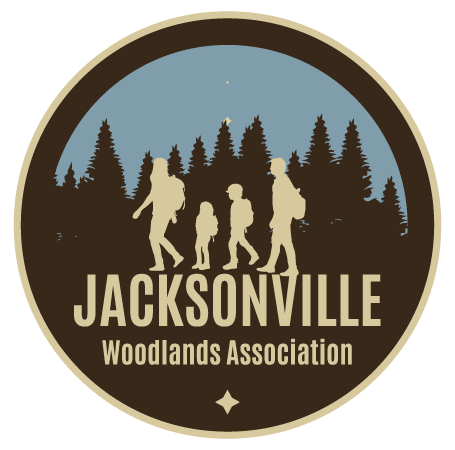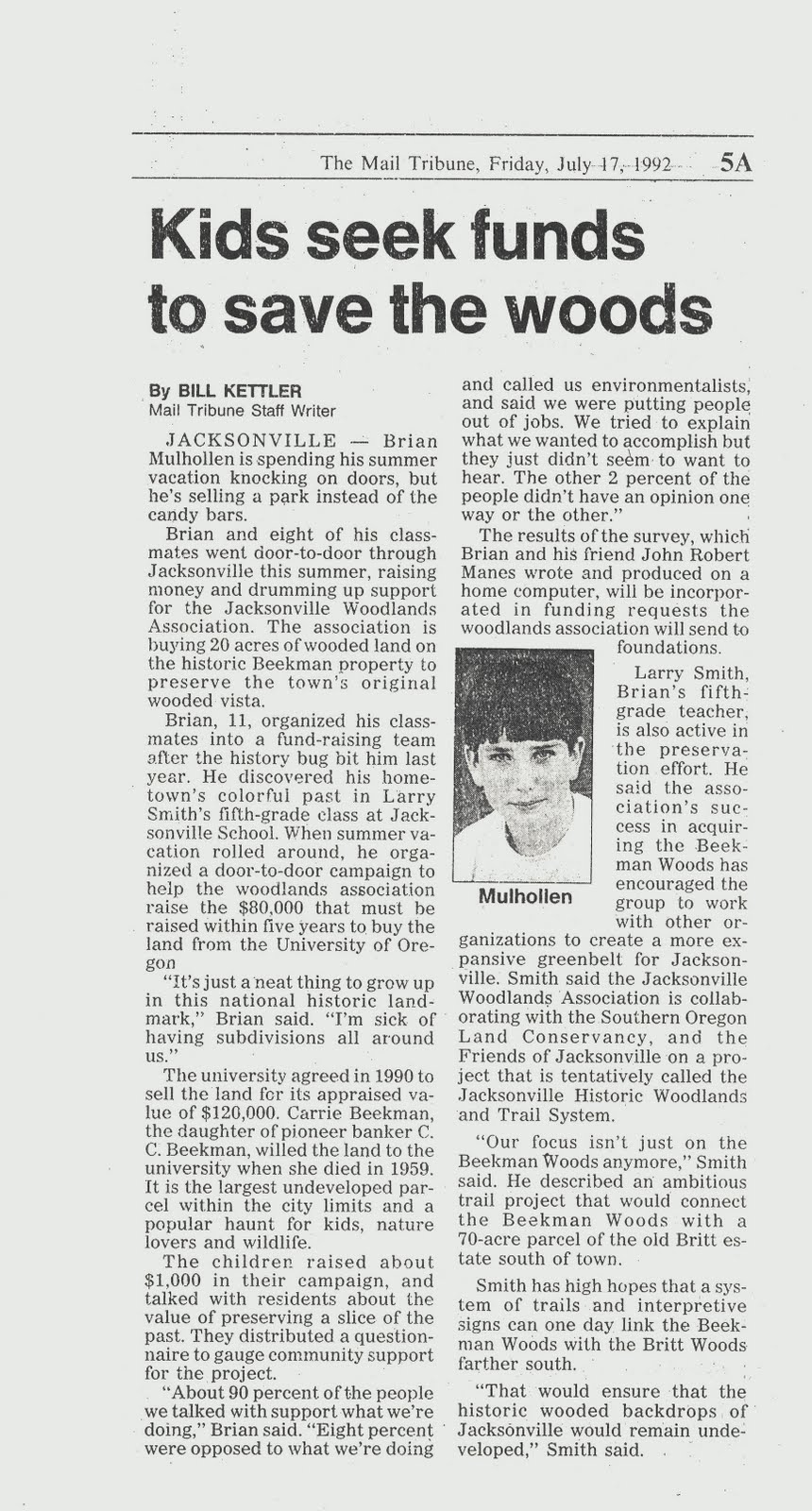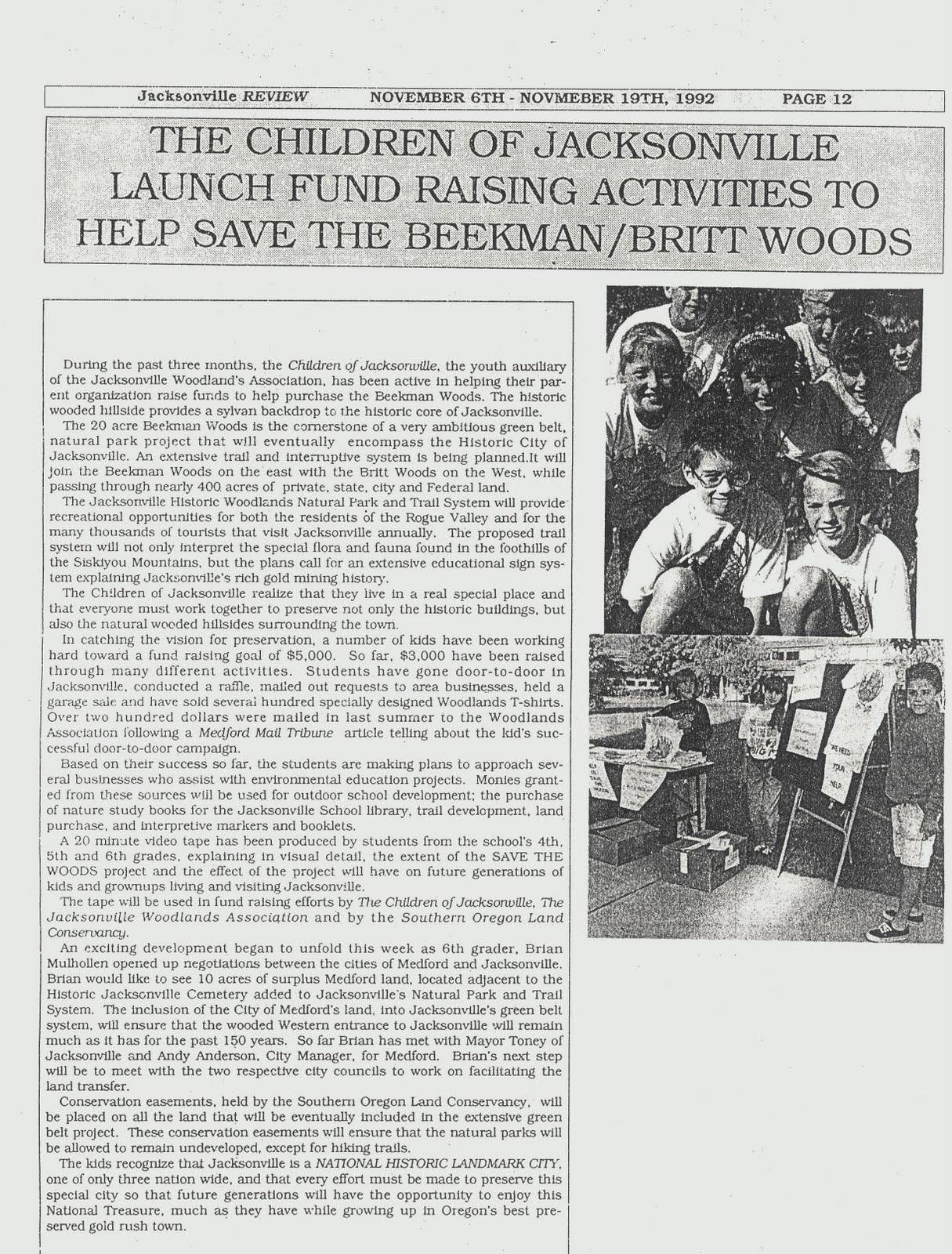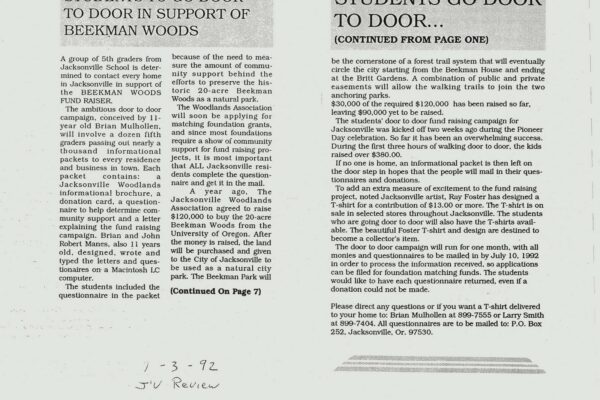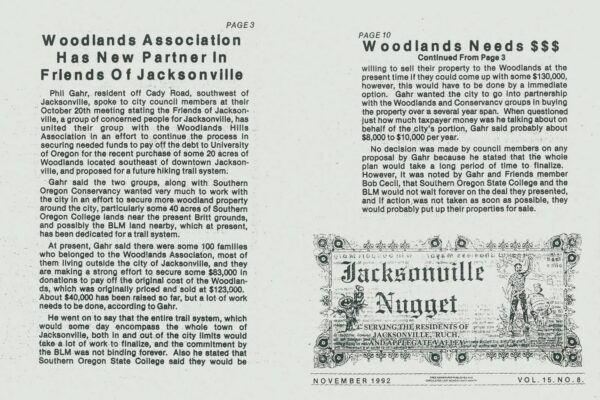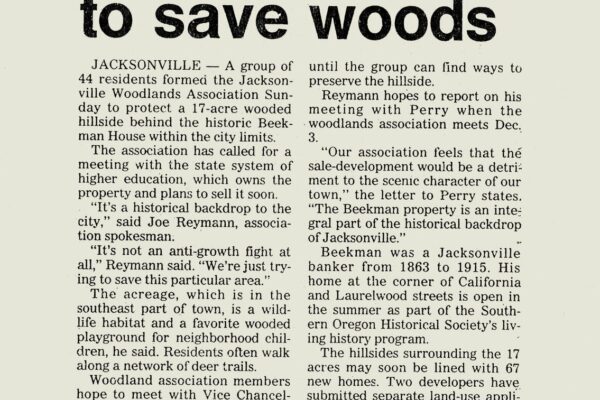The organization had planned to go out of business after the Beekman property was paid for, and after three years it started losing momentum and focus. Then a welcome alliance with the Friends of Jacksonville brought in three more properties that the Bureau of Land Management had intended to trade to developers. Equally important, it brought in Phil Gahr.
Larry recalls, “If it hadn’t been for Phil, the Woodlands would be history. He reinvigorated it, gave it a bigger picture. Phil became President of the Woodlands, and I became Vice President.”
About that time the City was contacted by Southern Oregon College about the 80 acres of the Britt Estate it still owned. “The property was not in the City’s development plan so only one house could be built on it. That depressed the price, so it was offered to the City for $143,000. We were still paying off the Beekman property, so Phil went after grants, and he got a $60,000 grant from the State for a down payment.
“Then the trees started dying on the Britt property. They had to be cut down because they were a fire hazard. We were allowed to get the profit from cutting the trees, and SOC took another $10,000 off the amount we owed.”
The Woodlands thought the Britt acreage went all the way to Highway 238, but then found it did not include eight acres next to the road. The County told Larry that Sarah Zigler owned the property.
“I went to the Southern Oregon Historical Society and looked her up. She had died in the 1920s.” However, there was a membership application in the Zigler file from a Zelia von Tress who said she was a Zigler descendant. “It had all of her contact information. But she was living in Indiana and she had to be in her 90s if she was still alive.
